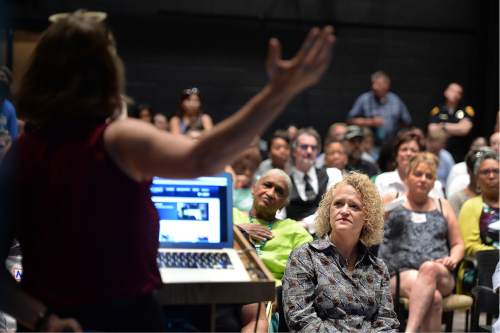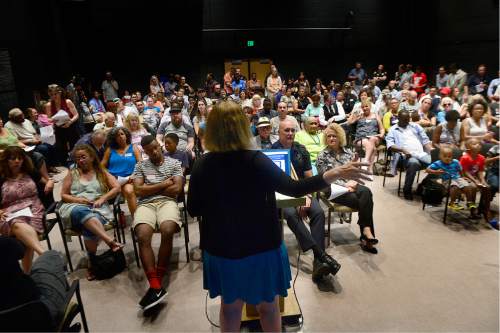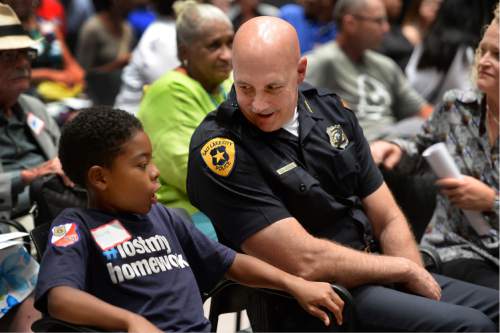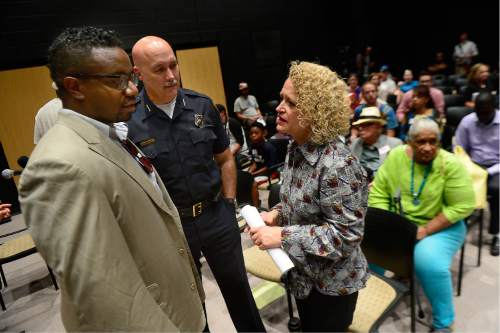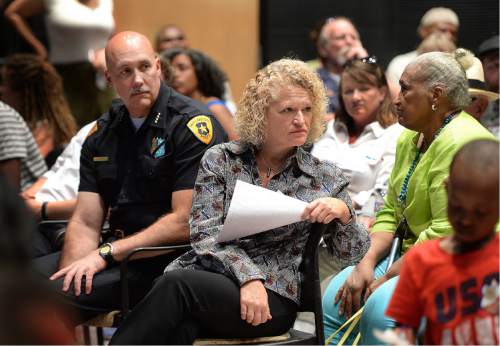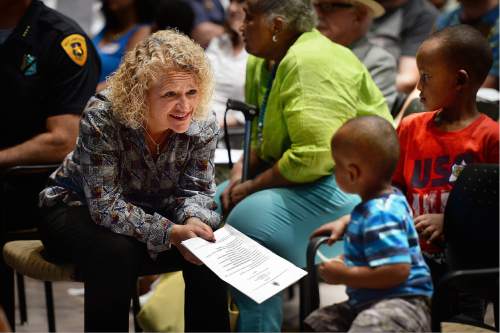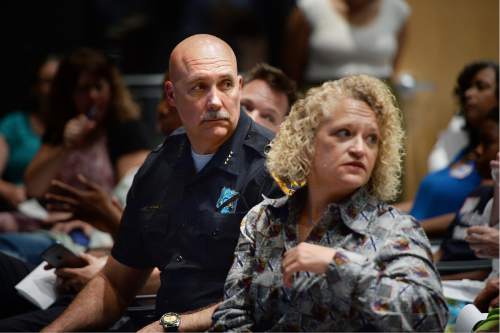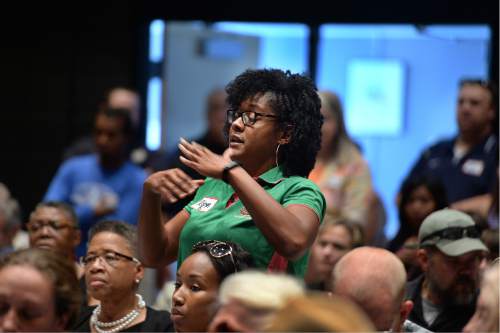This is an archived article that was published on sltrib.com in 2016, and information in the article may be outdated. It is provided only for personal research purposes and may not be reprinted.
It could be a new era in Salt Lake City policing as authorities reach out to residents, asking what they want from the police department.
The move comes as a wave of violence is sweeping across the country with cops shooting and being shot.
About 100 residents met with City Hall and police officials Thursday to begin what is hoped will be an ongoing discussion aimed at bringing more togetherness and mutual understanding between police and Salt Lakers.
Mayor Jackie Biskupski and Police Chief, along with a number of facilitators, took questions on de-escalation training, the Citizens Review Board and hiring and training practices.
It's a beginning, said Paul White, a University of Utah psychology professor who teaches in the ethnic studies program. He attended as a resident.
"This is the first of many conversations we can have as a community," he said. "It's easy to make it us versus them. But if we can come together and see we need to help the police and the police need to help us, that would lead to better outcomes for all of us."
Biskupski said her administration will endeavor to effect change. The dialogue Thursday evening at the Sorenson Cultural Center, she said, would be respectful to all residents.
"We have to do this together and not make enemies of each other," she said. "We have to do this in a productive way to navigate a change in this culture and the country."
The police chief told the audience, "It's hard to hate up close," a sentiment shared the night before at a community discussion with law enforcement in West Valley City.
"We can have prejudices and biases," Brown said. "But when we meet like this, those things go out the door."
After a number of presentations, the audience members broke into three subgroups to have discussions surrounding what they would like to see in de-escalation training, the Civilian Review Board and training and hiring practices.
A number of attendees said they wanted police to have more training in cultural sensitivity for black and American Indian communities.
Gaylene Dawes said many American Indians don't trust white society, and when questioned by police, "They just shut down."
"What about cultural-awareness training?" she asked. "I would appreciate if the police department took this into consideration."
Some people in attendance wanted answers to specific questions on training and police encounters; however, the gathering was intended to take input and suggestions, rather than to provide answers to specific questions. That frustrated some, including Latonya Hadley.
She had questions about why people of color are stopped more frequently than whites, and why they are sometimes approached by police in a different manner than whites.
Audience members were asked to fill out cards with comments and questions. In addition, city officials said the police department's website was being retooled so residents could more easily bring concerns to administrators.
Audience members should tell the police department what they would like to see on the website, said former city Councilwoman Deeda Seed.
More information is available at slcpd.com. The department will field questions and comments via email, through slcpdpr@slcgov.com.
Melissa Ford came to the gathering because she sought a better understanding of how police operate.
"I have a 17-year-old adopted son who is African American," she said. "I have concerns because of what you see on TV. He has to be extra cautious. It's not fair, but I'd rather he be safe."
The Salt Lake City Police Department is listening to residents to transform their interaction with the community, said David Parker, the chairman of the police department's Citizen Advisory Board and the director of Center for Creating Community, who also addressed Wednesday's West Valley City gathering.
"Our intention tonight is to succeed with the start of the transformation of the Salt Lake City Police Department," he said. "Transformations take time and patience and input from lots and lots of voices."


